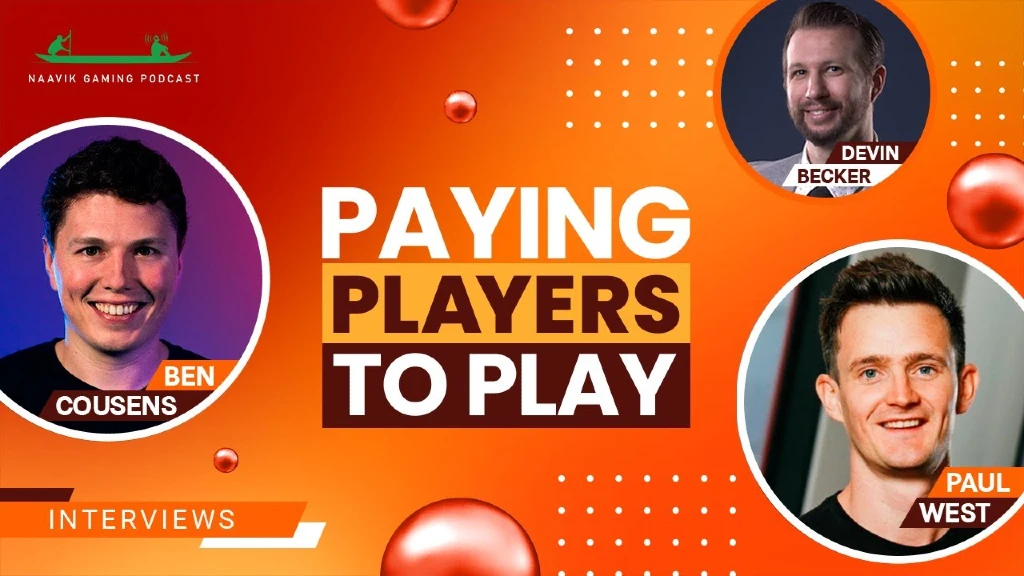In this episode, Emily Greer – co-founder and CEO of Double Loop Games (previously Kongregate) – joins Naavik co-founder Aaron Bush to discuss: #1 What Double Loop Games is building and how it aims to redefine the “casual” genre. #2 How the games industry’s venture ecosystem has changed since Kongregate raised capital in 2006-2010. #3 How Emily has improved as an entrepreneur when it comes to kickstarting, scaling, and setting an exit strategy for a business. #4 Tactics and advise when it comes to cultural and diversity efforts.
Emily’s Gaming Background: [00:00:55]
[Aaron]: How would you describe your games industry journey so far?
[Emily]: The origin story is that my brother and I grew up playing PC games together, and then we split off and went to college, he ended up dropping out of college to get into the games industry as an engineer, and because of that I went away of games for a while - but it was always in me at some sense.
I finished college, sort of stumbled into catalog and e-commerce marketing and fell in love with data analytics to understand how decisions are made, how the world is working, and so on. I stayed on that market for 10 years, working on what’s now called data science and UA, and then my brother had the idea for Kongregate, I started helping him out on the business plan, we launched it after a few months and then everything that I learned on that “not gaming space” become more relevant and helped me achieving the visions we had there.
Overall, games are fun and I wanted to actually make them and have that experience. I thought there was an opportunity as somebody who has a classic casual gamer identity, building games that I truly wanted to play from the ground up, and I pursue that.
Unpacking Double Loop Games Thesis [00:08:50]
[Aaron]: Can you unpack the Double Loop Games thesis and maybe just tell us at a high level what it is?
[Emily]: The name Double Loop comes from wanting to build hobby games. I think it's something people often misunderstand: I really hate the word casual, and the distinction of core casual that we build up in the gaming industry, as soon as you call one thing “core”, you’re describing everything else as sort of peripheral and lesser, and that’s something that really bothered me for a long time.
I also think there’s different casual player groups, and that’s what my sentence on Double Loop Games is trying to unpack: we want to make really deep games for this specific audience, games that are accessible, games that unfold, or things that you can play for years being really meaningful.
Funding Environment on the Gaming Industry [00:13:50]
[Aaron]: I’d love to hear your view on how the funding environment in the gaming industry changed since Kongregate.
[Emily]: It’s an absolutely massive change, part of what contributed to me being willing to feel up to starting Double Loop is that I found that the venture industry was finally really getting to understand games and that there were much better funding opportunities to go through.
In 2006, games really were not funded by venture capital at all. We kind of sneak in because we were a platform around games, and at that time investors had firmly fixed in their minds that games were hit driven, not a sustainable business, and they should just leave it to the publishers. When we’re raising we focused entirely on the fact that we’re a platform, and we didn’t speak to anybody who knew games very well - one exception was Benchmark’s Mitch Lasky, but that was the one person in Silicon Valley who knew games.
And then games went through this great transformation into a kind of free to play and games as a service model - which when you’ve that you can sustain it for a longer time and get better multiples around that, which set the stage for a new flowering of investment - and then VCs started to realize more of the opportunities it had. On Double Loop I think I talked to over 70 game investors and back in Kongregate that was probably less than 20 investors - where most were not real “games people”.
Gaming Industry TIPs [00:23:40]
[Aaron]: What about something that you wish you knew earlier during Kongregate?
[Emily]: I think there’s a couple things in terms of running a company and the maturity of it.
- We were really random and not thought enough in terms of salaries and what’s fair between people - and I feel we made a lot of mistakes related to compensation.
- Another thing is that when we started it was me and a bunch of young engineers, and there were definitely some early parts of Kongregate culture I really wouldn’t want to recreate, e.g. drinking until 3 or not being welcoming for people who didn’t drink.
Processes When Founding Kongregate [00:26:30]
[Aaron]: What are the lessons that you carry over that made the process of getting off the ground easier or more successful for Double Loop?
[Emily]: There’s a lot of things that were easier because I had found a company before, and actually knew what happens when you get investments and also when you get acquired. For example, literally having an organized folder that has every single contract I’ve ever signed in it. That sort of organization and thoughtfulness is something that I spent so much time trying to chase down.
Other details encompass the company foundation, making sure tax and legal and payroll is right, knowing a lot of accounting and understand when it's going right in the beginning so you don’t have to fix anything later - most of the process are related to this kind of boring administrative stuff that does make your life a lot easier later.
Another thing is knowing how important the initial company’s culture is - the first five people on it determines so much about how things are going to go and every habit that you build in the first 3 months, 6 months and 1 year are things that are going to set the foundation for everybody else.
Maintaining the Company’s Culture [00:32:05]
[Aaron]: Are there any top lessons in Kongregate that you’re thinking about carrying over to Double Loop?
[Emily]: We had this really extended period where we had under 30 people in the company, and at that time we had a lot of really good culture, openness, good discussions, psychological safety, and we thought we’d just keep working like that when we get bigger. What happened is that when we started to grow really strongly, and we went from 35 people to 70 people in 18 months, everything broke - communication, culture, and things that we take for granted when we were smaller literally stopped working.
And the image I’ve now in my mind is that of communication and culture. You should think about it in a table size, like if your team is small enough to seat in one table - say 6 to 8 people - that’s one culture. If you can all fit in one long restaurant table but it's going to be different conversations on either side, that’s a different culture. Then you know, you need a whole restaurant, a double restaurant, and on each of these points that’s a new breaking point, and thinking about it in terms of that spatial communication helps me envision when things are going to be a problem or need to be changed.
Psychological Safety [00:46:20]
[Aaron]: Are there maybe two or three tidbits that you can maybe call out as unique that you replicated on Double Loop and other people can replicate on their companies?
[Emily]: The key thing that is the most important to build good cultures is something called psychological safety and this is something I’ve kind of felt but didn’t have a word for and then a bunch of research came out that talked about it.
Psychological safety is the kind sense that you can come into work, be your true self, voice disagreements but feel safe disagreeing with people, and when there’s this psychological safety there’s trust, and trust is this magical ingredient that makes the world work better.
When starting Double Loop we want to keep this sense of trust, that people can trust each other, that means looking up to everybody as individuals, really hearing them and listening to them, assuming kind of best intentions but also aware that some people aren’t going to have those and dealing with that quickly - modeling it as much as possible, and if done well, it tents to replicate when done from the beginning of the company/team. To me that ultimately is the key to creating culture.








